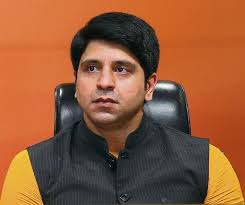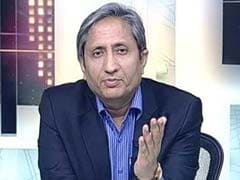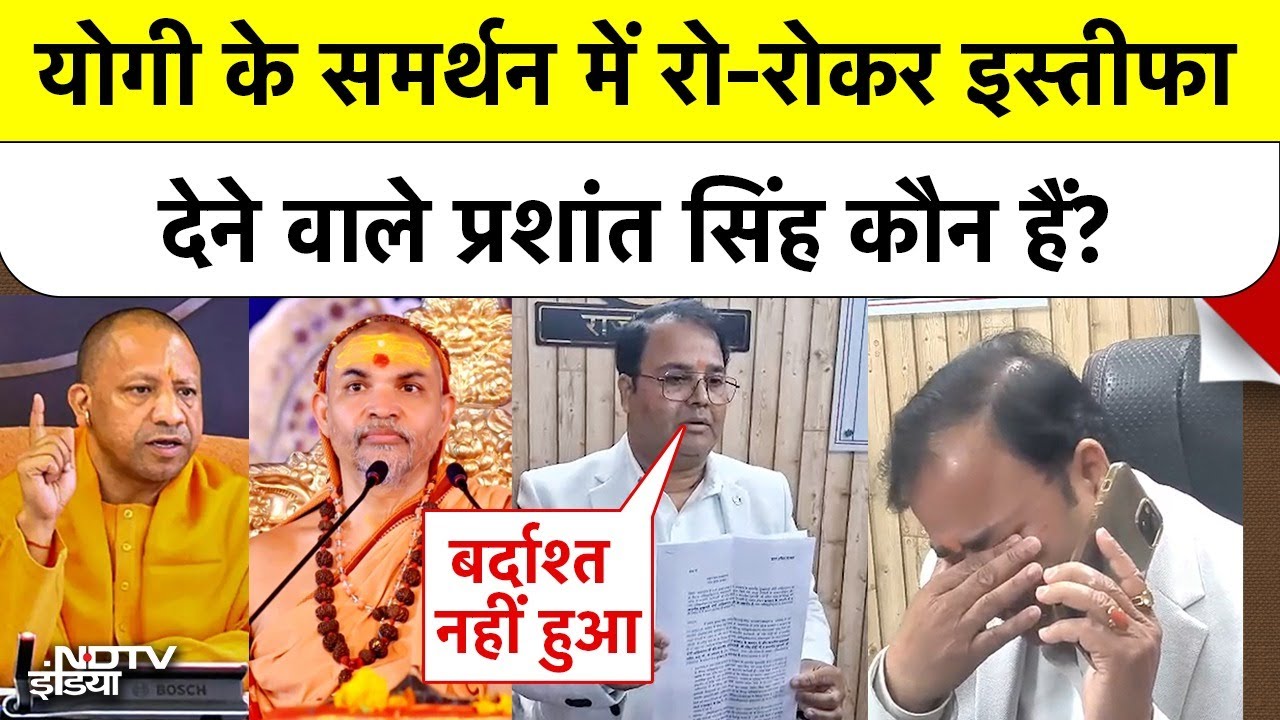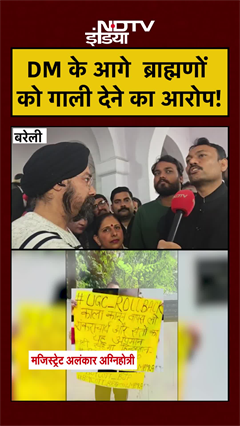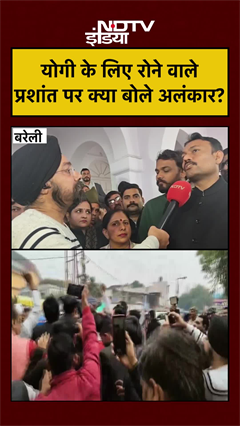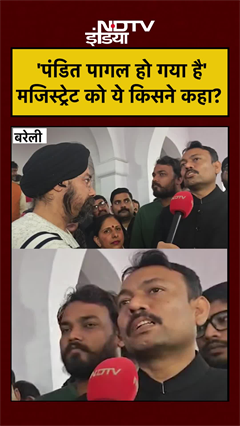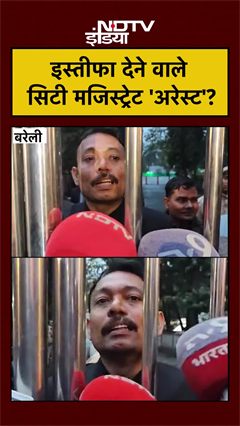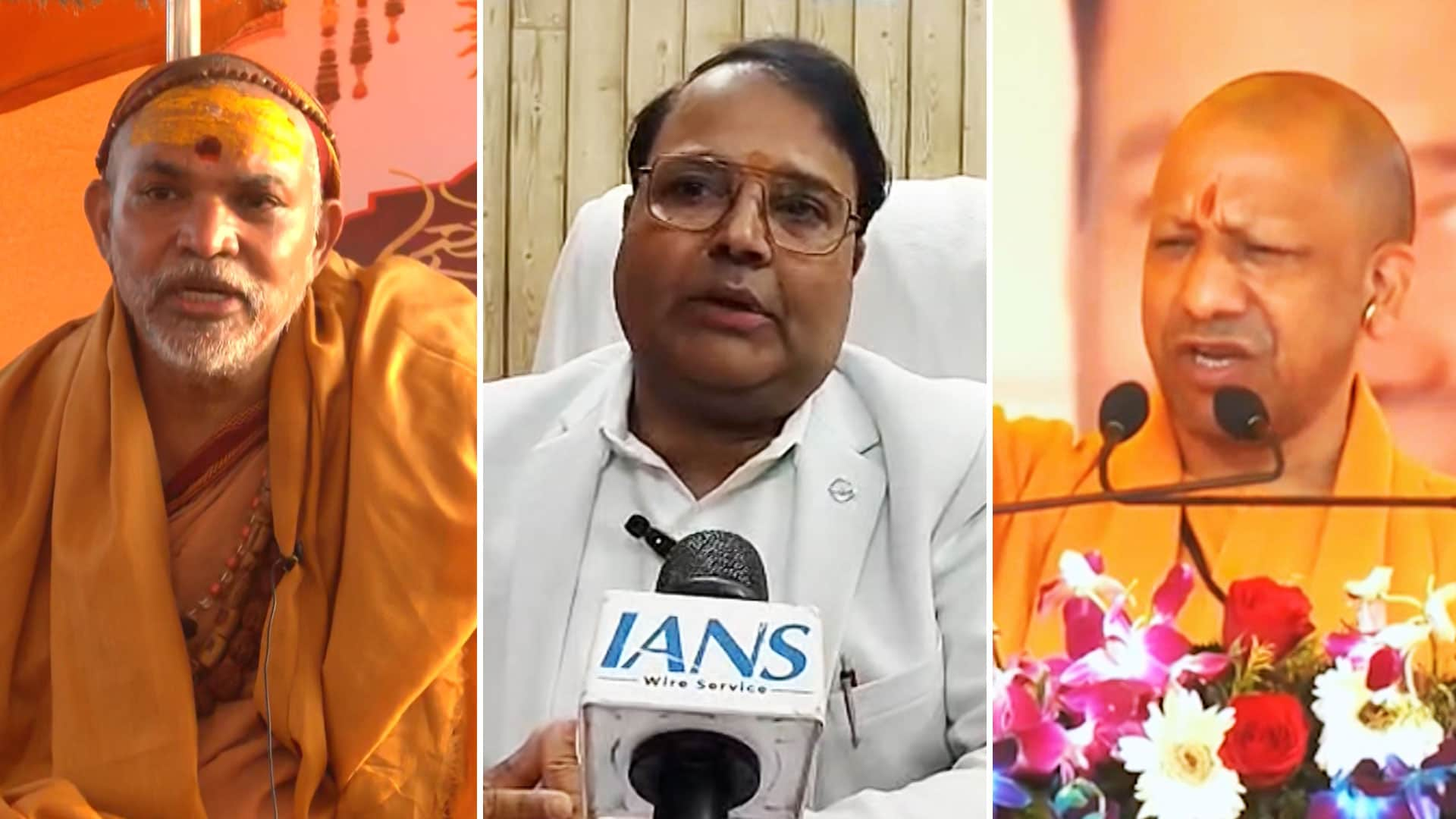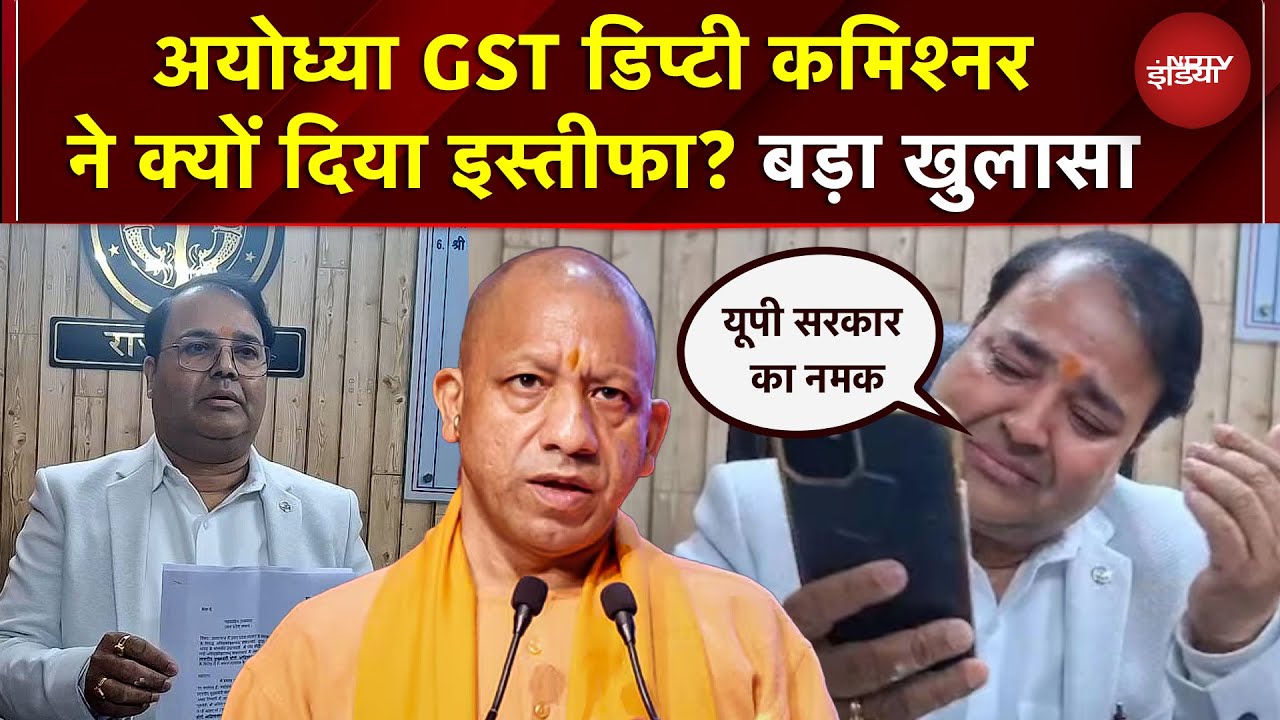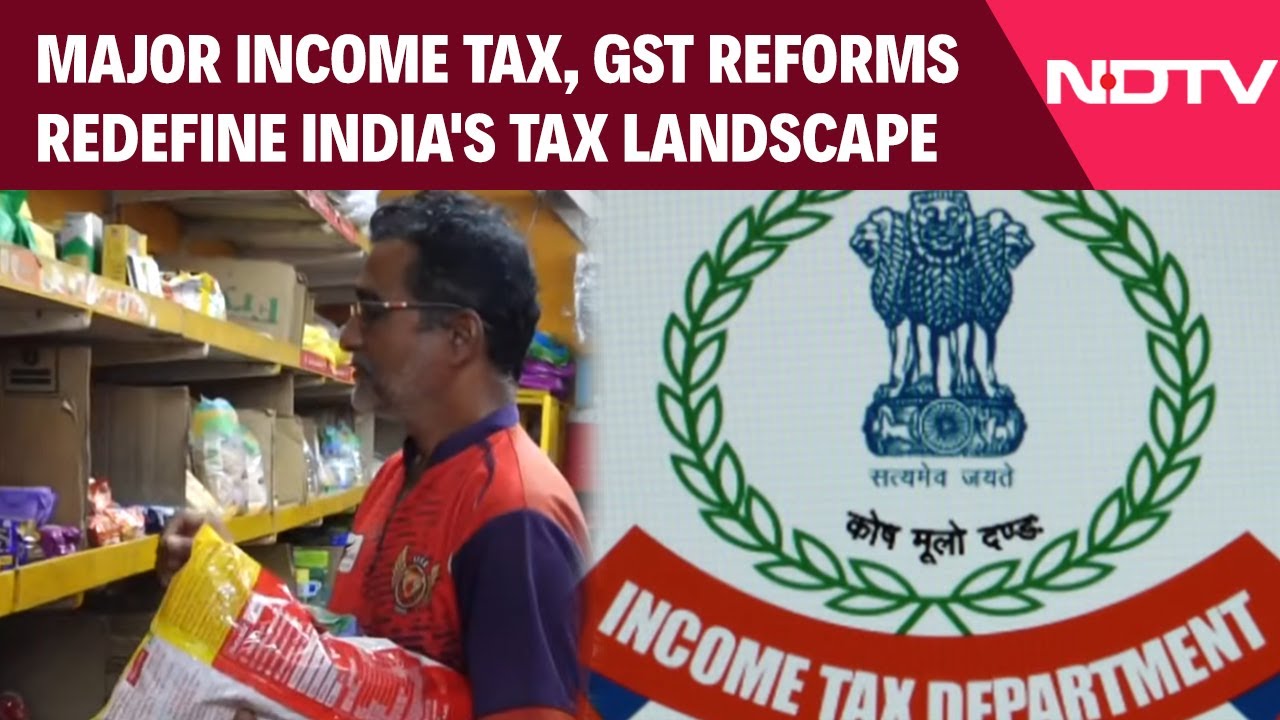The Goods and Services Tax (GST) aims at unifying India's $2 trillion economy and 1.3 billion people into one of the world's biggest common markets. To help understand the complex nature of the new tax regime and its impact, our experts, Prakash Sinha, Aseem Chawla, Ashok Batra, Gaurav Garg, Rakesh Nanda and Preeti Khurana answer questions posted by our viewers. Email your questions at askaboutgst@ndtv.com
Question: Now that GST has rolled in, what is of critical importance to traders, shopkeepers, assuming that most of them have registered with the GST?
Prakash Sinha: When doing transaction with a customer you raised an invoice, which is a retail invoice. The retail invoice is no more. There is a taxable invoice or a bill of supply. If you are a composite dealer, you need to issue bill of supply. If you are a normal dealer, you need to raise a taxable invoice. So the first thing you need to do is to correct the invoice format.
Question: Some small shopkeepers are still issuing hand written bills. How does it work?
Prakash Sinha: There is no problem in hand written bills. It needs to suffice the format of the information required in the invoice, as far as what copy you need to keep. There should be two copies - one the bill handed over to the buyer and the second is the copy they need to keep for themselves. If the goods involve movement or transportation, then they need to issue a third bill to the transporter. Apparently there is no problem in hand bills but they need to suffice the new regulations.
Question: How can the company ensure that this is being done at a small level?
Prakash Sinha: If your turnover is less than Rs. 20 lakh you need not register, it is a benefit given to small traders. But, if your turnover is upto Rs 75 lakh you can go for a composite scheme. It is the dealer's responsibility to maintain three copies for all the invoices - one for the customer, one for the transporter and one for himself.
Question: There is no mention about the GST rate on imitation jewellery. Will it attract 18% GST rate?
Prakash Sinha: Government has already covered imitation jewellery in schedule-6 and it will attract a GST rate of 3%.
Question: We have registered through the GST registration process, and got the GST number on a personal PAN card. Now, we want to change the PAN card number to the firm's PAN card, but we are unable to do so. Please suggest what to do?
Prakash Sinha: Please contact Good and Service Tax Network (GSTN) or write an email to them. They will be able to sort out the issues.
Question: Will 10-20 percent be the average GST rate in the long run? 28% is a very high rate.
Prakash Sinha: In the long run, rates of 12 and 18 percent may converge to 15 percent. But luxury items will continue to be taxed at higher rates.
Question: I have purchased a flat from a builder who got completion and occupancy certificate. My first payment was made after the builder got both the certificates. I was not charged service tax and VAT. Will I be charged GST now?
Prakash Sinha: I don't think so. Government has already prescribed that if the building is already completed then that will not be part of GST.
Question: I have two questions related to the composition scheme. First, after getting the GST registration number, what do I need to do to avail the composition scheme? Second, as a composition, I am not allowed to make sales outside my state but can I make purchases from another state?
Prakash Sinha: Government has already prescribed the documents required for availing the composition scheme. Government has given a form, where you can declare that you want to go for the composition scheme and you can then source from outside state but you can't sell outside your state.
Question: If I am raising an invoice for a customer who is in Bangalore, what do I write on the invoice?
Prakash Sinha: If you need to move your goods to another state, you need to charge IGST (Integrated GST) on the invoice. If it is within the state, you need to charge CGST (Central GST) and SGST (State GST). If your invoice is Rs 1,000 and your rate is 12% then you need to charge 6% as CGST and 6% as SGST on your invoice.
Question: I do aquarium business, and I supply fishes to different states. We also supply accessories with that. How will the GST affect us?
Prakash Sinha: Supplying aquarium and fish come under mix supply, which is a concept under GST. If you are supplying any such goods, which are not naturally bundled but can be supplied in a mixed bag, in that case, the rate that will be charged is the highest rate applicable in that group.
Question: I have two questions regarding the restaurant industry. I went to an AC restaurant, they charged me a GST of 18 percent and a service charge of 10%. Are the restaurants authorised to charge service charges or it is at their discretion? Secondly, is the GST applied on food delivery constant for all restaurants or there is a difference between AC and non-AC restaurant as well?
Prakash Sinha: If delivery is coming from a non-AC restaurant, then the rate will be 12 percent and if the delivery is coming from an AC restaurant then the rate will be 18 percent. As far as service charge is concerned, it is not governed by the GST Act. As per one of the court judgments, if you don?t want to pay the service charge, then you need to tell them to remove it from the invoice. Service charge is not mandatory, it is optional.
Question: If I am a dealer from Uttar Pradesh, can I purchase or sell inter-state? My turnover is Rs. 25 lakh?
Prakash Sinha: For inter-state sale or purchase, you don't need to do separate registrations for different states. One GST registration will solve the purpose. You just need to register for GST.
Question: I am a distributor of products manufactured in Gujrat and sold in Andhra Pradesh. The products have 28% tax rate and I want to know how a distributor can claim input tax credit for interstate transactions?
Aseem Chawla: GST is a destination based tax. In your case there is movement of goods from one state to another, so this will be subject to integrated goods and service tax which replaces the central service tax because that was the erstwhile tax that had dealt with the movement of goods from one state to another. Here we are talking interstate movement of goods, so Integrated Goods and Service Tax (IGST) comes into picture. Now, the good part here which everybody needs to keep in mind on a larger perspective is how to claim these set off, because you?re talking IGST so therefore IGST can first of all be creditable against IGST, then CGST which is the Central Goods and Service Tax and then State Goods and Service Tax. So if I am liable to pay Integrated Goods and Service tax because of movement of goods from one state to another, the ability for me to gain a set off would be in this particular order of preference but in this particular illustration it is very clear that IGST would be the imposed in this particular case.Anchor adds another question: And he can get a credit for the entire 28% tax?Aseem Chawla: Absolutely, entire. But the order of priority is very important. GST is one tax. The GST has three elements largely, one is the Integrated Goods and Service Tax, second is the Central Goods and Service tax and the other is the State Goods and Service tax. So within this one tax there are three larger components of tax systems and when it comes to set off of the input tax credit which is of the variant of Integrated Goods and Service tax, the preference would be first to set it off against any IGST liability, then against any CGST liability then against any SGST liability. Of course it is available for complete set off but this will be the order of preference for set off. This is the larger education which the community needs to know.
Question: I just wanted to know that being a management consultant I have to pay service tax at the rate of 15%. My questions are related to this are: Do I need to pay service tax for this quarter right away and will be charged GST from next quarter? And if so, then what would be the rate of tax for management consultancy and service consultancy?
Aseem Chawla: The tax comes into effect from July 1, so whatever services have been rendered for the quarter till June 30, the old regime continues so please make sure that you pay service tax in time. From July 1 onwards, you will be taxable at 18%. Please ensure that your provisional registration is in order, which I am sure you would have already done and after a point in time, get your final registration done as well. And beginning July, please ensure that you end up discharging your GST liability at the rate of 18%.
Question: I would like to know the impact of GST on cell phone and T.V prices. Will they go up or come down?
Aseem Chawla: If you look at basic phones, which are manufactured in India, they are likely to be cheaper because of the input tax credit, which was earlier not available. So therefore earlier the excise was not available as in for tax credit, for set off purposes. The erstwhile excise duty will now be available as input tax credit under the GST regime and therefore to that extent there is the highly likely possibility of the mobile phones coming down. As you?ve rightly said the high end mobiles are still import dependent so to that extent the BCD (Basic Customs Duty) does remain consistent and therefore the ability to gain set off of that in the entire value chain may not be as plausible and therefore to that extent smartphones might end up becoming more expensive.
Question: I am a dealer in vegetables and fresh ginger, my turnover is more than Rs. 50 lakh per annum. I will be sending fresh ginger from Karnataka to Uttar Pradesh, Delhi and Andhra Pradesh. All fruits and vegetables which I am dealing with are exempt from GST. Do I have to register for GST and, if yes under what rule.
Aseem Chawla: Now you are dealing in exempt goods, so the question of registration does not arise. There is a difference between exempt goods and goods which are nil rated or zero rated. So if he?s dealing in exempt goods per say, I think no need for sweating on GST.
Question: I am a small seller having an arts hobby. I sell items that I make on online platforms like Craftsvilla, Craftsy etc. My turnover is not more than Rs 1,000 a month. I have been asked by a website to submit my GST registration number. I don?t have a company, I don?t have a partnership firm, I?m just an artist selling whatever I make at home. Why are online sites asking for my GST registration number? What should I do now?
Aseem Chawla: So Farah should be happy with the newspaper and news reports which say that at least the tax collection on supplies made to e-sellers etc. has been deferred for the time being so 1% TCS which was proposed has been deferred for the time being. So Farah should write back to the e-commerce compliance team citing newspapers.
Question: Please let me know about the GST implications for a home buyer. At present, the buyer has to pay 4.5% service tax in addition to the stamp duty, during procession. While stamp duty will remain the same, how GST will impact a buyer buying an under-construction house.
Aseem Chawla: Well, the Supreme Court in ANT judgement did clarify the levy of VAT so to that extent that issue was settled, but again taking queue from our discussion, it is highly plausible and highly expected also that the reality business, so to speak, should pass of the additional claims of input tax credit. Just now we spoke on the consumption of cement, etc. Therefore, to that extent, the benefits should trickle down. And I am of the view that the government is very hawkish in terms of looking at the benefits of anti-profiteering, specially in such sectors where benefits are palpable and? Anchor adds another question: I?m going to buy a house and although the real estate developer could take input tax credit for steel and cement, now; his cost will go down. But how do I know he?s passing on the benefit to me? Because I can go and complain to the government; you know the anti-profiteering works on complaints. But how do I know how much input credit he has got and how much he has passed.Aseem Chawla: Anti-profiteering can also take some amount of cognizance and they need not get a knock on the door and as I believe, in a few sectors, the government will be really hawkish. Real estate is one sector where government really wants the benefits to trickle down to the end consumer.
Question: I have one property in the name of my wife and that has been leased to a company. And the total rent is something around Rs 50,000 per month. Do I need to pay GST on rental income?
Aseem Chawla: No, it is about 6 lakhs of annual income, so it would be outside the ongoing GST regime.
Question: I?m an industrial trader in Tumakuru. My trading is limited within Rs. 75 lakh but I heard that I can go for the composition scheme. If I go the composition scheme, I will not get input credit. Please suggest what to do
Aseem Chawla: Yeah, I get your point If you go for a composition scheme, they will pretty much have to absorb it on a reverse charge basis and it may not sound very attractive economically for them. But then you also have to realize going forward, are you going to reach the threshold of Rs. 75 lakh sooner than later, and if the answer is yes, I would rather suggest you to get into the value chain and not opting for composition schemes. As I said, there is a fair bit of economics and cost benefit analysis that all of us have to do as far as composition schemes are concerned. But if you think in the near future, Rs. 75 lakh might get breached, getting into composition schemes is not mandatory and you can elect to be in the value chain which might place a lot of confidence in your industrial business community.
Question: I wanted a clarification on what tax the race course has to pay on betting on race horses?
Ashok Batra: This is a sin item, so the tax rate will be 28%. The only thing you have to check is if there is any additional cess leviable, you have to pay that cess also in addition to 28%.
Question: I have booked a house with a base price Rs 33 lakhs. And earlier I had to pay 4.5% service tax. Now he says I have to pay 18% GST. I?ve not understood why it is so much higher. I also have a doubt whether I only have to pay the service part of that cost or it includes cost of the land as well as cost of the material and services. It is under construction and I have paid almost 85% and remaining about 15% is left. It is under construction, not yet completed, however the due date for construction is over.
Gaurav Garg: So one thing is what is the rate? If it is purely a work contract activity, then in that case it is going to be the 18%, but you know if the transfers include the land value also then in that case it is going to be the 12%. But before arriving at 12% or 18% I think it is the responsibility casted on the builder to take proper input tax credit and then to come out with a component which will be removed from the tax from the customer. So there is I think clarification also and some guidance also from the CBEC that you know, builder should not overprice or try to profit through the GST.Ashok Batra: The law is very clear; whatever amount you have already paid, that has been subjected to service tax and there is no question of additional tax on that, so 15% he has to pay because he is a buyer of the flat of course undivided portion of that will come. 18% is out of the question, it has to be only 12% and looking at the fact that he is getting much more and CBEC has already issued an advisory caution to all the builders. He should talk to the builder, in case he doesn?t agree he can go to the government because anti-profiteering law has also been introduced.Anchor adds another question: But 12% on what? The total price of the flat? Ashok Batra: 12% of the value including the cost of materials and services. So the only thing is his credit will be more so ultimately the cost under GST will be much, much less
Question: What is the effect of GST of the small car?
Ashok Batra: Rate on the small car is 28%.
Question: I was hearing that we are unable to register before 30th so will it be good to register a house before a 30th or after the 30th. What would be the rate applicable after 30th and before 30th? If you could give me an idea? The house is ready for possession.
Ashok Batra: He is talking about the registration and registration fees he has to pay, which he has to pay on the registration of the house. In any case registration or road tax are not going to be subduing with GST. So whatever fees is applicable as of now because it?s a straight levy, he has to pay the same amount. Not affected by GST at all.Gaurav Garg: Correct, there is a schedule which specifically excludes house property, completed house property transferred, so I think there is no GST on that portion and balance as said.
Question: My question is in four different parts. One thing is that ATM withdrawal, from ATM counter as well as a shop. Do we have to pay any GST for that? That's number one. Number two, whenever I sell my shares in the market. What is the GST rule applicable for that? In the mutual fund, whatever I send in the market back to the mutual fund. What is the GST? And in terms of financial advisors, do we have to pay GST?
Ashok Batra: In fact securities will be excluded from the definition of goods and not subject to GST at all. Whatever the amount that is being charged by that broker for the services
provided by in relation to the sale and purchase of security, the sale and purchase of mutual funds, he is supposed to pay tax at 18 percent. Anchor adds another question: And what about the ATM portion?Gaurav Garg: As far as ATM is concerned the withdrawals of money is not transactional, but say the bank puts some charges then bank will only charge GST on those charges.
Question: I wanted to know if I wanted buy a whole house then what will be the GST on that?
Ashok Batra: No GST because it is the sale of property, which has already been built up. There is no question of GST. Just while you go for registration, you have to pay duty, that?s all.
Question: How will GST affect my current stock of goods, whose value is above Rs 70 lakhs? I?ve already payed CST.
Gaurav Garg: The rate would be 5% or 12% depending on the value of the apparel. If it is less than 1000, it is 5%, if it is more than 1000, you need to charge 12%.Anchor adds another question: What about the input credit?Ashok Batra: In CST, he won?t get it. We are getting all kinds of credits except for CST. CST would have been origin-based tax. Of course, the government from which this transaction has originated, that government got the tax, so the other government is not willing to give it. Otherwise, if there is a VAT, excise, other tax has been levied and you have a proper invoice document, you?ll get that credit back.Gaurav Garg: But I think he will be able to claim that 40% input tax credit because he will qualify as a trainer. And if the value is less than?Ashok Batra: If the garment is subject to excise duty. If it is not subject to excise duty, it will be below 40%.
Question: How do I know if the price quoted to me by the retailer is the same as charged by the manufacturer on which IGST is paid?
Rakesh Nanda: The invoice is to be uploaded on the portal itself by the supplier. The recipient, which means the customer, will be able to view the invoice on his account on the portal itself. They can both see whether the information furnished by them is matching or not. In case there is any mismatch, they can make the necessary changes.
Question: But how would an end customer know whether he/she has received the benefit of the GST?
Preeti Khurana: I think, the question is in the context of a retailer selling to the final consumer, like us. The expectation is that the onus should be on the manufacturer to provide a revised pricing list so that the retailers know what they should charge. And this revised pricing list should actually take into account any kind of margins that have to be adjusted for the retailer or for the distributor, if there has been a change in rate of tax or there is a higher or lower availability of credit. Accordingly, my anticipation is that manufacturers will come out with a revised listing of prices and as a consumer, one can make sure that this pricing has been as per what the manufacturer has asked the retailer to push the goods at.Anchor adds another question: Will this be public? Will the maker of toothpaste say that this is what is the expense for me and this is the tax I have paid? Preeti Khurana: The GST law actually provides for this. It makes sure if the retailer or manufacturer is dispatching goods or selling goods and not passing on any benefits they have incurred, due to availability of credit or change of rates. In such a situation, the GST Act has a built-in provision that says ?your registration can be cancelled?. They have actually changed the law. So if you do not comply with the anti-profiteering clause, your registration stands cancelled.
Question: I am a telecom distributor and until now, the companies were paying my service tax and everything. What are the new guidelines for telecom distributors? Will we pay tax or the company?
Rakesh Nanda: Whenever you are providing any service or selling any product, you are liable to pay taxes depending on whether you are making an intra-state sale or inter-state sale. If you are making an intra-state sale, certainly two taxes will be applicable - Central GST and State GST. If you are making an inter-state sale, it will be Integrated GST. Now here, you have the benefit that whatever taxes you have already paid on your input, you can claim the set-off against the output taxes and pay only the balance to the government. Anchor adds another question: Could you explain how the cascading effect is eliminated in GST? Rakesh Nanda: Whenever we are buying the goods from, let?s say, the manufacturer, they take excise duty as well as VAT or CST as the case may be. Now, they will be charging the tax, so what happens in the current scenario is we land up paying even VAT on the excise duty. So there is a ?tax on tax?. Under GST, there will be no such situation on one single value. Both taxes by Centre as well as by state are going to be levied so this cascading thing will be over. Another thing is that in quite a few cases we are unable to take the credit, let?s say the dealers. They are unable to take the credit for the excise, otherwise even in some cases for the VAT. Now this situation will be over and we will be in a position to take all the credits which are eligible and that we can set off against our output liability.
Question: How would a particular consumption of goods and services be taxed simultaneously in central and state GST?
Preeti Khurana: The GST law covers both goods and services. Rates have been announced for goods and services separately, but there is a concept of mixed supply and composite supply. So if you?re supplying goods and services together you?ll have to look at the provisions in a different manner. So, this aspect has been taken care of in the law where you may be supplying goods and services together as a complete supply, so this has been taken care of. Anchor adds another question: An example of goods and services would be - you?re selling AC, which is a product, but at the time of the sale, you also give an AMC or Annual Maintenance Contract, which is a service. So here, you have both the goods and a service and hence how does the tax applies? Preeti Khurana: In this kind of situation, in the example you gave, it?s a very interesting example. If it is the concept of composite supply, like you just mentioned. In that case we will take the rate of the principal supply. So in the case of an AC, which is supplied with installation, you will apply the rate applicable to the AC.
Question: Do I need to file returns every month? Can I raise an invoice with my GST registered number in Maharashtra if services are rendered outside the state?
Rakesh Nanda: In services, there are two important things when we decide about what taxes will be levied in case of a transaction. Broadly, we can say we need to first identify the nature of a supply, whether it is an inter-state or an intra-state and this will depend on the location of the supplier, like you are there in Maharashtra and let?s say the services you are providing to the customer, if he is in Maharashtra, then in that case it is a case of intra-state supply and you will be charging two taxes, that is Central GST and State GST. And in case your customer is outside the state, then you are providing the service in the course of an inter-state state. There, you have to charge one single tax that is called Integrated GST, which is nothing but a combination of CGST and SGST.
Question: Till date, there was no tax on solar cooker, but today I was forced to charge 28% GST. That?s very surprising. My question is what is the rate on solar cookers?
Preeti Khurana: The first time the GST Council came up with rates, there was opposition from manufacturers of solar equipment as well as LED lights and that?s why they looked at these rates and there was a downward revision but the solar manufacturers have not got the benefit of a lower rate. But I would like your caller to take heart from the fact that by joining this chain of GST registrants, by paying GST taxes, he can actually end up having access to a large number of buyers for his business. And a sort of gang is going to happen, like a GST gang, where you can take benefit of taxes, have access to a large number of buyers of your business, and if you?re compliant, the GST Council has laid down a provision that says that you will be given a compliance rating. So if your compliance ratings are good, then you stand a chance, a
billion chances to increase your business. Definitely your compliance rating is going to go up because you?ve never paid taxes, but this is going to be completely online. It will have its initial issues, but hopefully things will settle down in 6 months or so.
Question: We were textile fabric dealers, which was tax-free until now. Now, it?s tabled under GST. Will I get input tax credit?
Rakesh Nanda: We have to see the rate whether that particular rate which has been specified for this commodity is with ITC or without ITC. So in case the rate which has been specified for a particular product in which they are dealing, then they certainly take it. ITC is input tax credit. So, you see the rates, whether the rates are with ITC or without ITC.






